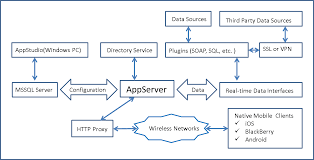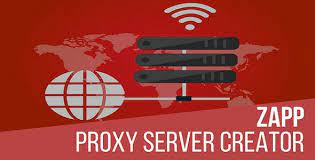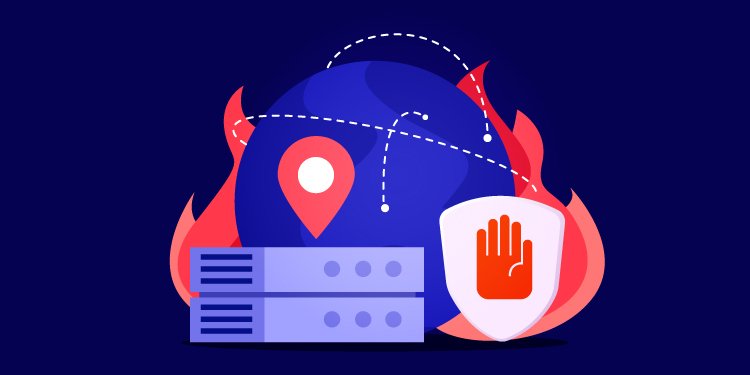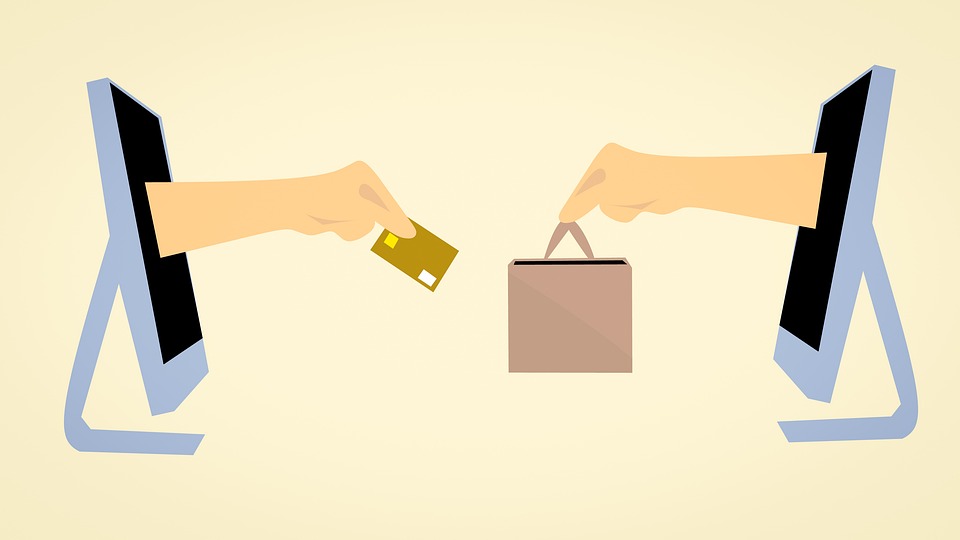
Do I Want To Use A Proxy Server
5 Reasons Your Company Should Use Proxy Servers
The average person probably has only a vague understanding of the purpose of a proxy server.
If you’re like most people, you probably associate proxy servers with unblocking Netflix content from other countries or staying a bit more secure on an open WiFi network. The reality, however, is that proxy servers do much more — and are especially vital for businesses.
Proxy servers are a fairly simple intermediary mechanism between a computer with a private IP address and another server on the internet.
A proxy server has its own IP address, which is made public instead. While a rather seemingly insignificant change, the proxy IP address can be used for a number of vital business functions related to everything from security to customer experience.
There are five vital corporate reasons to use proxies that every business leader needs to know about, even if you aren’t involved in the tech side of things.
1. Improve Corporate and Institutional Security
Every company today is worried about hackers. A data breach is costly, both in terms of monetary loss and public image.
A proxy server reduces the chance of a breach. Proxy servers add an additional layer of security between your servers and outside traffic. Because proxy servers can face the internet and relay requests from computers outside the network, they act as a buffer.
While hackers may have access to your proxy, they’ll have trouble reaching the server actually running the web software where your data is stored. You may not be able to fully keep top hackers out with just a proxy IP alone, but you’ll be much less vulnerable.
2. Carry Out Sensitive Tasks Anonymously
Proxies are probably best known for their ability to anonymize web traffic. Unfortunately, many people fail to realize just how important this function is for businesses.
Reporters, whistleblowers and security officers count on the added identity protection offered by proxy servers to protect themselves, sources, their companies, clients and partners.
You can also better protect any current research and development and other company activities.
Any potential spy trying to track web traffic to figure out what your business is developing won’t be able to track your employees as easily if your company always uses a proxy. Any sensitive tasks completed over the internet are more secure when first anonymized through a proxy.
3. Balance Traffic So Your Server Doesn’t Crash
Nothing annoys a customer faster than a company’s website going down when they need it. Proxy servers, cloud data storage and peering improve customer experience by ensuring this doesn’t happen.
Essentially, your website’s data and content is stored across many servers around the world in the cloud, and peering helps your network handle greater traffic. Of course, you can’t ask a customer to try a bunch of ISPs to reach that content.
A proxy server instead is used to create a single web address to serve as the access point. The proxy will also balance the requests to each server so none overloads. All of this works in the background to ensure a seamless customer experience on your website.
4. Control Employee Internet Usage
No company wants employees accessing unsecure or inappropriate websites on company networks. That’s why many internal networks are run on a proxy server.
When the network is accessed through a proxy, network administrators control which devices have access to the network and which sites those devices can visit. You can block undesirable content, as well as any sites you don’t want employees using on company time.
Network administrators can even record what content is being accessed and when for internal purposes. Many security officers use this to monitor for potential illegal activity or security breaches.
5. Faster Speeds and Bandwidth Savings
Due to all the extra work accomplished in the background by proxy servers, most people assume they slow down internet speeds. This isn’t always true.
Proxy servers can easily be used to increase speeds and save bandwidth on a network by compressing traffic, caching files and web pages accessed by multiple users, and stripping ads from websites. This frees up precious bandwidth on busy networks, so your team can access the internet quickly and easily.
Title image by Matthew Wiebe
RJ Prego has focused his career on global data center management, global and regional colocation and network managed services and has a deep understanding of the latest developments in data center, telco, IT services, cloud and CDN.

How to Know If You’re Behind a Proxy Server
A proxy server acts sort of like a middleman between your browser and servers that display Web pages. They do this by receiving page or link requests from your browser and then passing them to the Web server that hosts them. Many businesses use proxy servers to block access to certain sites or provide network users with more anonymity while surfing the Web. However, some sites restrict access to computers that connect through a proxy server. If you are having trouble accessing some sites, it might be because your computer connects through a proxy. Therefore, if you are having access problems, you should know how to determine whether your computer connects through a proxy. Firefox Launch Mozilla Firefox on your computer. Click “Tools, ” click “Options” and choose “Options from the menu that slides out. Click the “Advanced” tab in the Options window. Click the “Settings” button in the Connection box. Locate the selected connection option in the list on the Connection tab. If your Internet connection uses no proxy server, the “No Proxy” connection setting option is enabled. If either the “Use System Proxy Settings” or “Manual Proxy Configuration” setting is selected, then your computer accesses the Internet via a proxy server. Internet Explorer Click the “Tools” drop-down arrow in the upper-right portion of the browser window. Select “Internet Options. ” Click the “Connections” tab in the Internet Options window. Click the “LAN Settings” button. If there is a check mark in the box next to the “Us a proxy server for your LAN” option, then your PC accesses the Web through a proxy server. If there is no check mark in the box, your computer does not use a proxy server. References Resources Tips Google Chrome uses the same network settings as Internet Explorer. If you use Chrome as your browser, you can determine if you are behind a proxy server by checking the connection settings in Internet Explorer. There are many sites on the Web that can help you determine whether you access the Internet through a proxy server. Sites such as, and all allow you to view proxy settings on your computer with a couple of mouse clicks. Writer Bio Jeff Grundy has been writing computer-related articles and tutorials since 1995. Since that time, Grundy has written many guides to using various applications that are published on numerous how-to and tutorial sites. Born and raised in South Georgia, Grundy holds a Master of Science degree in mathematics from the Georgia Institute of Technology.

What Is a Proxy or Proxy Server – What Is My IP ®
Proxy Server
A proxy server is basically another computer which serves as a hub through which internet requests are processed. By connecting through one of these servers, your computer sends your requests to the server which then processes your request and returns what you were wanting. Moreover, in this way it serves as an intermediary between your home machine and the rest of the computers on the internet. Proxies are used for a number of reasons such as to filter web content, to go around restrictions such as parental blocks, to screen downloads and uploads and to provide anonymity when surfing the internet.
Why Use a Proxy?
If you are wanting to surf the web anonymously then proxies can provide you with a means to hide your IP address from the rest of the world. By connecting to the internet through proxies, the public IP address of your machine will not be shown but rather the IP of the proxy server will be shown. This can provide you with more privacy then if you were simply connecting directly to the internet. To clarify, there are a number of proxies that can provide you with service. For instance, we searched and found several. Some are free and some charge a small fee, the choice is up to you but we have found that the paid services are more reliable, faster, and more secure.
How to Setup a Proxies With a Browser
Internet Explorer Settings
Click Tools (See image 1)
Choose Internet Options (See image 1)
Select the Connections Tab (See image 2)
Click LAN settings (See image 2)
Check the “Use a proxy server for your LAN” box (See image 3)
Enter the IP Address of the Server and the Port Number (See image 3)
Click OK (See image 3)
Use our Proxy Check tool to see if your settings worked
Firefox Settings
Click the Firefox Button(The button in the upper left corner)
Choose Options
Click Options in the new tab
Choose the Advanced Tab
Click Settings
Click Manual Proxy Settings
In the HTTP Proxy Box enter the IP Address of the Server and the Port number
Click OK
Google Chrome Settings
Click the Customize and Control Button(Button with the wrench picture in upper right corner
Select Under the Hood
Choose Change proxy settings
Click LAN Settings
Check the “Use a proxy server for your LAN” box
Enter the IP Address of the Server and the Port Number
Safari Settings
Select Safari
Choose Preferences
Click Advanced
Click Change Settings
Check the Web Proxy(HTTP) box
Click Apply Now
Proxy Detection
Firstly, are you truly hidden? In addition, we provide detection tool at Furthermore, if service is setup correctly you will see its IP address on the check page and you may receive a message that one was detected. Above all, it is impossible to detect all proxies. To clarify, we may not detect the one being used, but that does not mean that other sites can’t. Nor does it mean you are completely anonymous.
Frequently Asked Questions about do i want to use a proxy server
Should I set proxy on or off?
Answer: A: Unless you are using an HTTP Proxy (Doubtful), HTTP Proxy should be set to Off.Apr 24, 2021
How do I know if I should be using a proxy server?
Click the “Connections” tab in the Internet Options window. Click the “LAN Settings” button. If there is a check mark in the box next to the “Us a proxy server for your LAN” option, then your PC accesses the Web through a proxy server. If there is no check mark in the box, your computer does not use a proxy server.
What is a proxy server for WIFI?
A proxy server is basically another computer which serves as a hub through which internet requests are processed. By connecting through one of these servers, your computer sends your requests to the server which then processes your request and returns what you were wanting.


